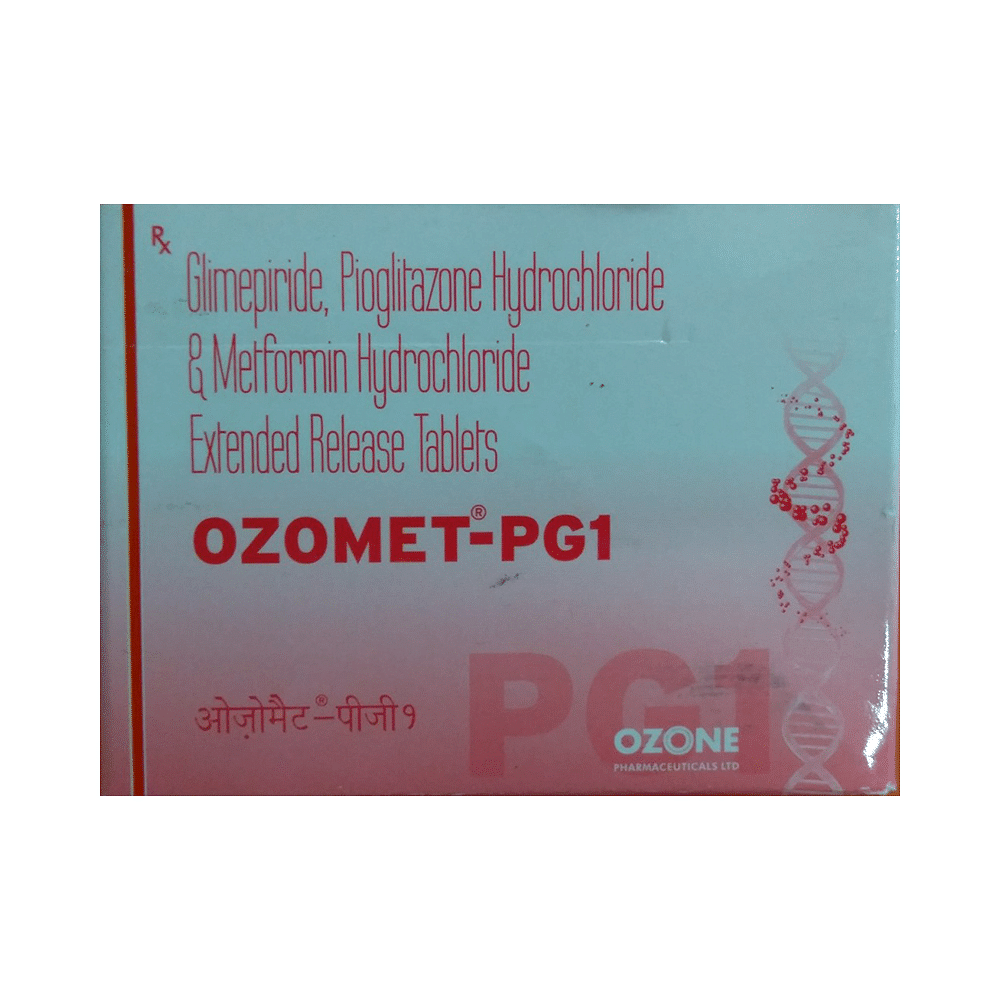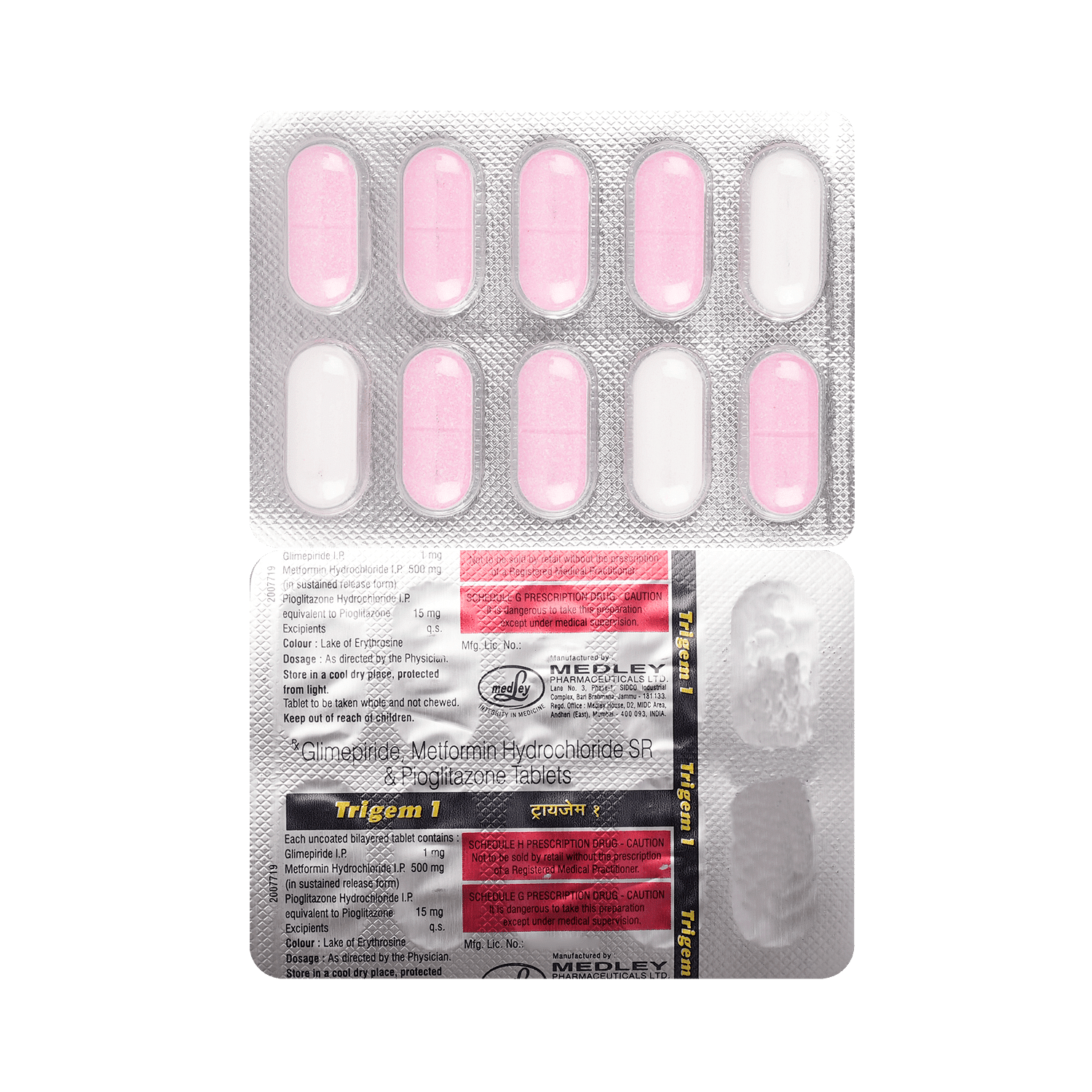
Mytopride PG 1mg/500mg/15mg Tablet
Manufacturer
Cardimind Pharmaceuticals
Salt Composition
Glimepiride (1mg) + Metformin (500mg) + Pioglitazone (5mg)
Key Information
Short Description
Mytopride PG 1mg/500mg/15mg Tablet is a combination medicine used to control blood sugar levels in adults with type 2 diabetes mellitus.
Dosage Form
Tablet
Introduction
Mytopride PG 1mg/500mg/15mg Tablet is a combination medicine that helps control blood sugar levels. It is used together with diet and exercise to improve blood sugar control in adults with type 2 diabetes mellitus. The medicine helps in the proper utilization of insulin, thereby lowering blood sugar levels. It is important to follow the prescribed dosage and be aware of potential side effects and warnings, especially regarding pregnancy, breastfeeding, and alcohol consumption.
Directions for Use
Take this medicine in the dose and duration as advised by your doctor. Swallow it as a whole. Do not chew, crush, or break it. Mytopride PG 1mg/500mg/15mg Tablet is to be taken with food.
How it works
Mytopride PG 1mg/500mg/15mg Tablet is a combination of three antidiabetic medicines: Glimepiride, Metformin, and Pioglitazone. They work by different mechanisms to provide better control of blood sugar when single or dual therapy is not effective. Glimepiride is a sulfonylurea which increases the amount of insulin released by the pancreas. Metformin is a biguanide that lowers glucose production in the liver, delays glucose absorption from intestines, and increases the body's sensitivity to insulin. Pioglitazone is a thiazolidinedione which further increases insulin sensitivity.
Quick Tips
Take it with food to lower your chance of having an upset stomach. It may cause hypoglycemia (low blood sugar level) when used with other antidiabetic medicines, alcohol, or if you delay or miss a meal. Always carry some sugary food or fruit juice with you in case you experience hypoglycemic symptoms such as cold sweats, cool pale skin, tremor, and anxiety. Your doctor may check your liver function regularly. Inform your doctor if you develop symptoms such as abdominal pain, loss of appetite, or yellowing of the eyes or skin (jaundice).
Related Medicines

Ozomet-PG 1 Tablet

Trigem 1 Tablet

Glimetone MP 1 mg/500 mg/15 mg Tablet

Fordia PG 1 mg/500 mg/15 mg Tablet

Gallypride GP 1mg/500mg/15mg Tablet

Nuglim-PM 1mg Tablet

Glimu MP 1mg/500mg/15mg Tablet

Medfor GP 1mg Tablet

Glimfirst MP 1mg/500mg/15mg Tablet

Glimivance MP 1mg/500mg/15mg Tablet


